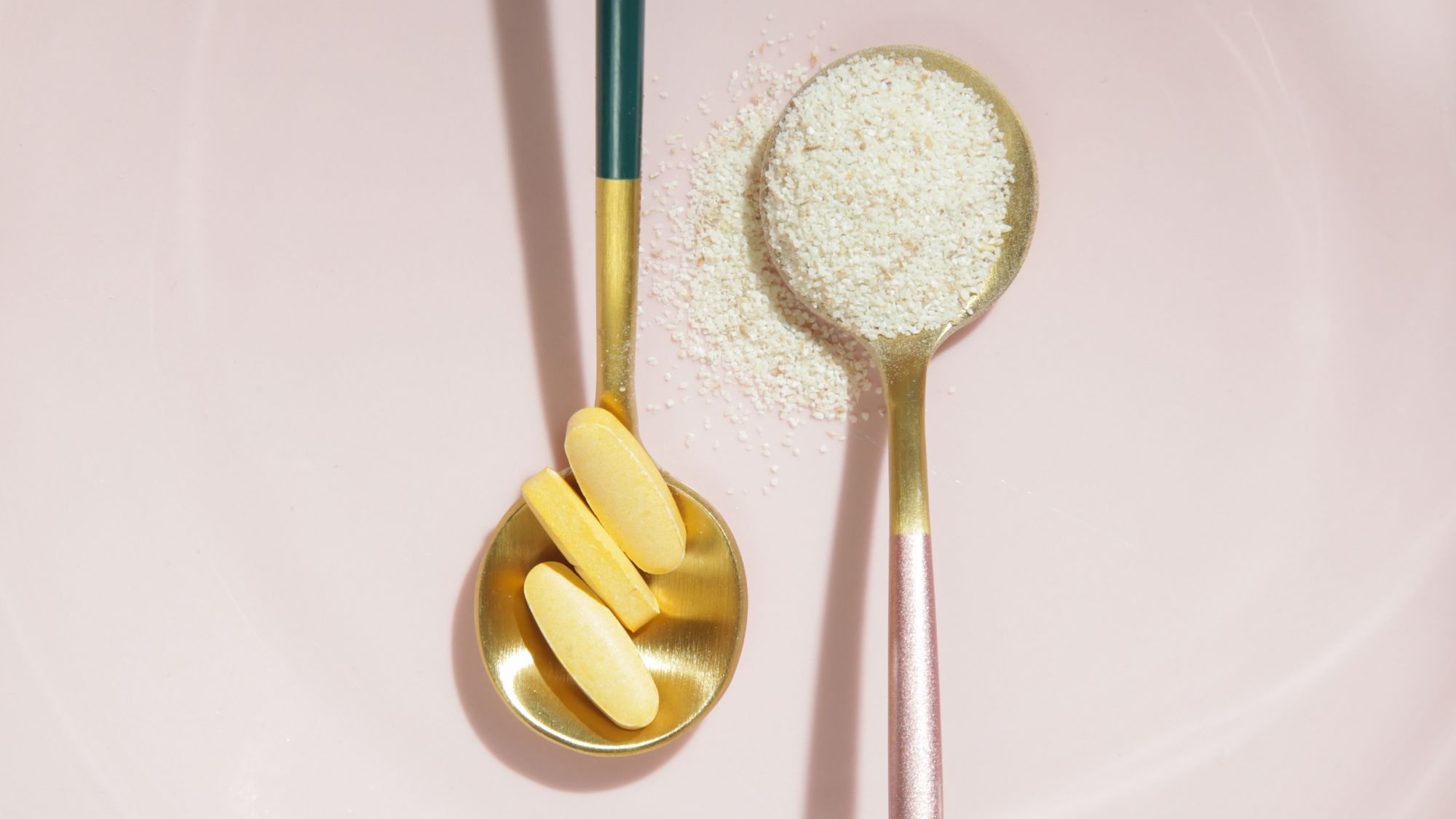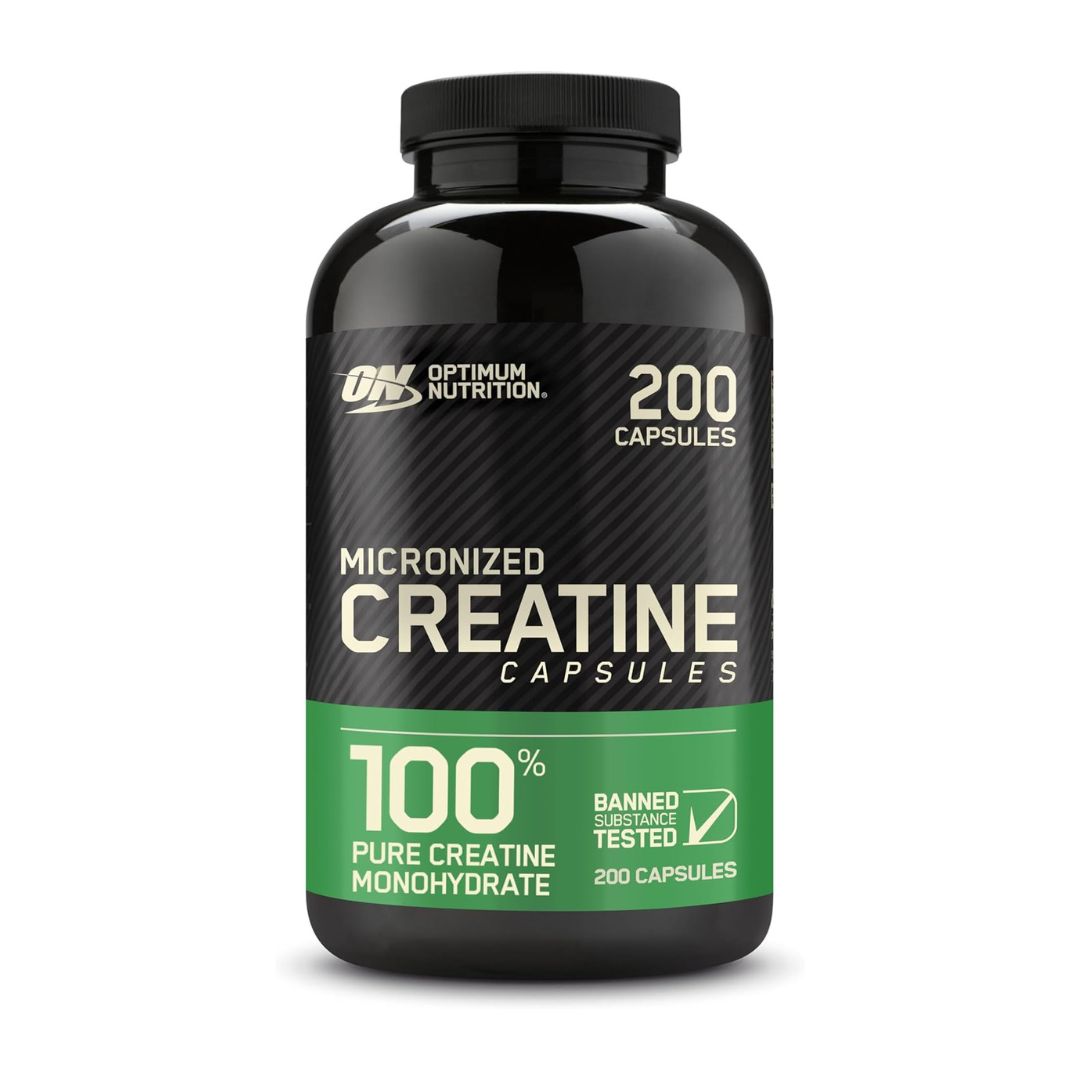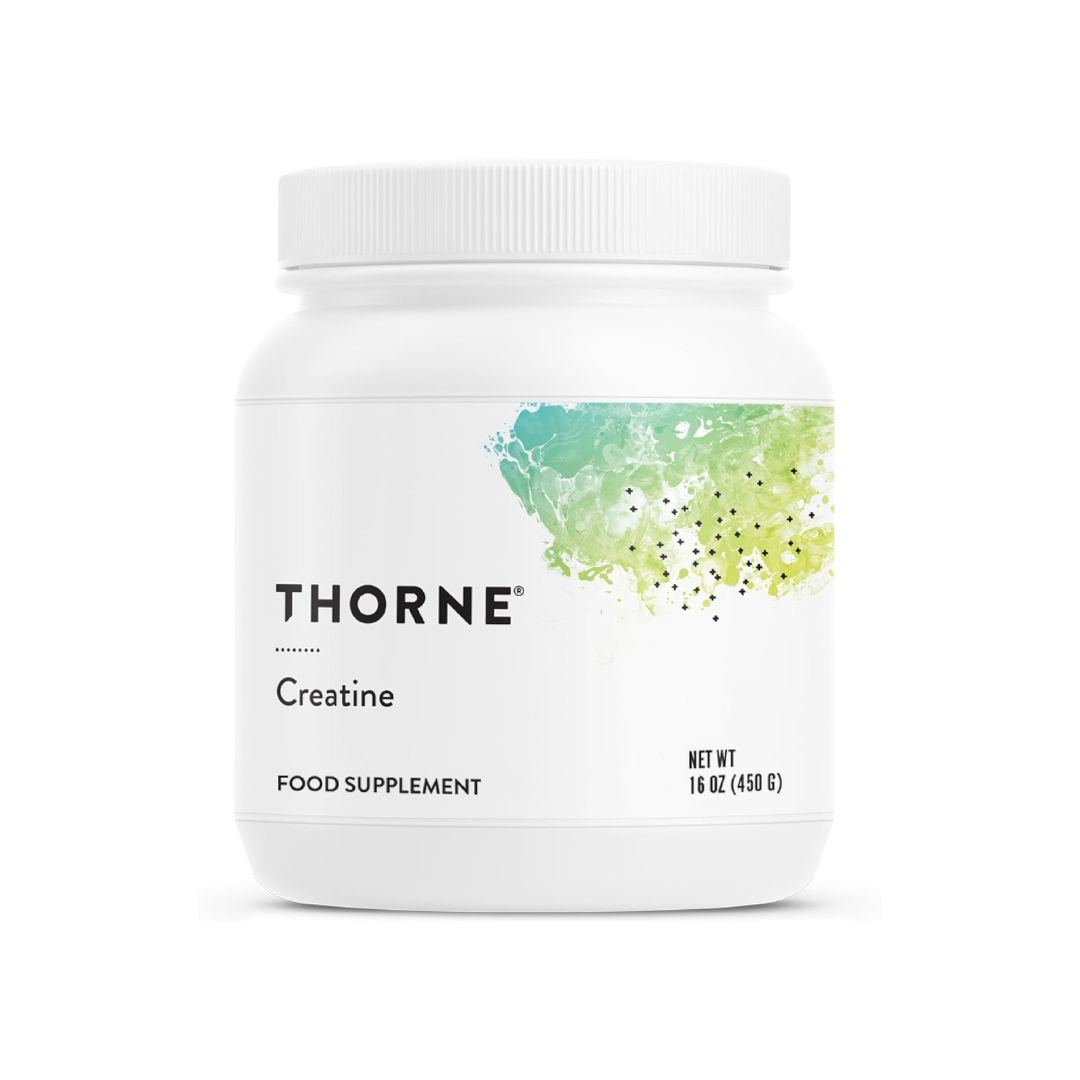So, is creatine really worth supplementing? This gym-goer tested it for three months - and swears it's a game-changer
Muscle building or not worth your money?


Celebrity news, beauty, fashion advice, and fascinating features, delivered straight to your inbox!
You are now subscribed
Your newsletter sign-up was successful
Another day, another trending supplement that promises the world. It's hard to know which supps could genuinely boost your health and which are, in short, a waste of time and money. It’s a minefield out there, and we've likely all tried wellness fads that don't deliver the results they promised. Which is where this honest creatine for women review comes in, one gym-goer's experience of testing the viral supp for three months.
Why creatine, why now? It's the buzzy supplement of the moment, you see, and as a highly active Health Writer who's been running, swimming and cycling for years, I’m always looking for healthy food and lifestyle choices that keep me happy and energised.
Alongside the hundreds of Instagram posts I've seen about the supp, a friend of mine started (repeatedly) telling me about the many creatine benefits, including improved muscle mass, increased strength, and boosted mood.
So, I asked her to share her honest creatine for women review, as well as interviewing top experts in their field for their take, too, all while scouring research papers for the latest studies. Keen to read more? Keep scrolling, and don't miss our guides to the best protein powders, the best clear proteins and vegan protein sources to add to basket, too, as well as and how to get enough vegan protein from vegan protein sources if you don't eat meat.
Creatine for women review: "It's a total gamechanger."
What is creatine?
Creatine is a natural substance that your body produces in the liver, kidney and pancreas, with an additional one to two grams a day usually absorbed from meat and fish consumption.
So, what exactly does it do? In short, support your skeletal muscles during anaerobic exercise and further support other vitals, like your heart and brain.
It’s popular with athletes and is pretty widely researched, with this study highlighting how creatine might benefit vegetarians who don’t get enough from their diet and further papers demonstrating what a beneficial supplement it can be for regular gym goers and those above the age of 60.
Celebrity news, beauty, fashion advice, and fascinating features, delivered straight to your inbox!
How does creatine work?
In layman's terms, creatine powers up your muscles, increasing performance, endurance and recovery. Which leads us nicely to its many benefits...
What are the benefits of supplementing creatine?
With a good bank of phosphocreatine (aka creatine in your muscles), you should experience less fatigue and quicker recovery, meaning you’ll feel ready to hit the gym (and experience fewer DOMs) than if you didn't use the supp.
"Creatine is widely acknowledged for its ability to improve muscle strength and endurance, making it a popular supplement among athletes," says Varsha Khatri, a registered nutritionist and ayurvedic practitioner at Prowise Healthcare. "Creatine can also help women develop lean muscles and recover from heavy workouts."
Not just that, but as Lesley Kumar, RD and Nutrition Consultant at Ringside24 explains, "Creatine helps expand muscle volume by drawing water into your muscle cells." Sounds good, right?
How to decide if creatine is for you?
As with any supplementation, it's a highly personal choice and a decision that should be made with the advice of a qualified medical professional.
That said, the majority of experts I spoke to for this piece recommend creatine, mostly to clients who do a lot of high-intensity workouts, strength training, or endurance training.
Of course, more casual gym goers can enjoy the benefits of creatine, too. Just be sure to consider all of the variables that might impact your training and avoid supplementing for the sake of it, warn our experts. "If you're not doing any sort of resistance training, endurance workouts, fitness classes or gym workouts then the benefits are likely to be far less pronounced," stresses Maddie Pasquariello, a registered dietitian (RD) based in Brooklyn.
Plus, studies don't always tease apart the effects of resistance and endurance training and the creatine itself, she goes on. "In the case of a population of athletes all taking creatine, these folks are already incredibly strong, have great endurance, and have muscle reserves built up, not to mention live pretty healthy lifestyles." TLDR: These individuals are tailoring most aspects of their lives towards muscle building, and studies don't always take this into account when sharing conclusions about creatine.
Wondering whether creatine is safe for women to supplement? Our experts don't see any problem with it. "As a woman and a registered dietician, I consider creatine to be as safe as it is for men. It offers similar benefits regardless of your gender," continues Kumar.
What to look for in a good creatine supplement?
Creatine comes in powder, tablet or gummy form, although experts we've spoken to have warned that gummies might not have the same efficacy.
"As a registered dietician and a nutritionist, I emphasize quality - opt for reputable brands to ensure purity and safety," shares Kumar. Not sure what to look for? Always check the label for HPLC pure creatine monohydrate, which you can find at Holland & Barrett, Amazon and more.
Rather go with a nutritionist's favourite brands? Kumar's are below.
An honest creatine for women review
Annabel is a 35-year-old who works in the emergency services and works out regularly. She started supplementing creatine three months ago and has seen encouraging results.
My friend started at the gym just shy of two and a half years ago and slowly but surely started gaining confidence and seeing results with her weight training. She was also incorporating running and cycling workouts each week, meeting the criteria for highly active. I see first-hand how much positivity she gets from strength training and working her body in a variety of ways.
We've both incorporated protein powders into our morning shakes before, but creatine was alien to us until the start of summer. That was, until she friend saw it slip into her TikTok For You page, did her research on using it as a pre-workout for women and decided to give it a go herself. So, three months later, how did she find the supplement?
A month of using creatine: 5 grams per day
Often, athletes take up to 15g a day of creatine for a couple of weeks, but my friend started on 5g a day in powder form. "It made me gain a little weight at first," she notes, and she also noticed increased thirst and as a result more trips to the bathroom.
That said, she didn’t notice any stomach upsets or breakouts during this first month, and felt her mood was improved too.
Creatine after three months: 5 grams per day
Three months in, my friend said she finally understood why people rave about the supplement so much. Now she’s feeling the benefits of more tone, increased energy in workouts, and a lifted mood – which she admits goes hand in hand with positive gym and exercising sessions.
Qualified expert Pasquariello also shares what you could expect in weeks four to eight and beyond. "This is when you should notice more significant changes taking place in terms of muscular endurance and power, when you pair the supplement with regular resistance training. You should also notice increases in lean tissue mass and chest press strength, as well as other measures of overall strength," she explains.
For Annabel personally, she saw the most noticeable results around weeks eight to twelve, where she felt really energised for her workouts and, in turn, able to push her personal bests. She also liked that she didn't notice any of the negative side effects she'd seen with other pre-workout supplements previously (eg an upset stomach, bloating, skin issues or shakiness. "It doesn't make me feel like I’ve had ten coffees, which I liked."
Bottom line? As with all supplements, consult your doctor or health practitioner to rule out any issues you may have and decide on the correct dosage, and then monitor how your body reacts. So, will you be giving it a go?
Shop a nutritionist's go-to creatine products now:
Will creatine make you bloat?
You might initially feel a little bloated by water weight (fear not - this is a common side effect) as you do need to make sure you stay hydrated. "Water retention is definitely something to be expected when starting creatine, as the muscles will hold excess water as they're being built," continues Pasquariello.
But don't worry - this is normal and part of any muscle-building process and won't last long, she reassures. Some might have stomach upset, but our experts advise starting with a low dose and working your way up to avoid this.
What is the right creatine dosage for women?
Factors that should be considered when deciding how much creatine to take include your body weight, activity level and fitness goals, explains Khatri.
As a rough rule of thumb, "women may start with two to three grams, though a standard maintenance dose ranges from 3 to 5 grams a day," the expert adds. Start on two grams and you allow the body to adapt slowly, reducing your risk of side effects such as bloating or an upset stomach. Then, your dose can be raised as tolerance sets in.
Do note here, though: Some experts recommend cycling your intake of creatine over periods, e.g. taking it for between eight to twelve weeks and then going off it for some time so as not to have long-term effects on kidney function.

Cam is a freelance writer who loves interior design, travel and anything that gets her outdoors enjoying the elements. Fitness has always been a part of her life, she’s been running and doing yoga for years, with reformer Pilates creeping into the mix over the past 12 months. When Cam is not writing, you’ll usually find her cycling to a good coffee shop in London, swimming or trying to surf - her latest love.

